Virtual Seminar on Graduate Studies and Research Opportunities at University of Regina (Thursday Dec 11, 2025)
Description:
The Faculty of Graduate Studies and Research (FGSR) at the University of Regina (U of R), Canada provides graduate students with valuable faculty mentorship, extensive research opportunities, and support services. Its holistic, student-focused approach-featuring professional development, inclusive programs, experiential learning, and global engagement-FGSR creates an outstanding foundation for future researchers.
The U of R, in collaboration with COMSATS University Islamabad intends to organize an online seminar on ‘Graduate Studies and Research Opportunities at the University of Regina, Canada’ for CUI’s faculty members and students (seminar flayer is attached).
The session will cover:
- Overview of U of R and its graduate programs (Master and PhD)
- Research opportunities, funding, and admissions process
- Scholarships and student support services
- Q&A with U of R representatives
Zoom ID: 938 6896 4696
The program for the event (moderated by U of R):
|
7:30-7:35PM
|
Welcome participants, introduce panelists, and housekeeping items.
|
|
7:35-7:40 PM
|
Opening remarks from AVP International and Dean FGSR
|
|
7:40 –7:50 PM
|
University of Regina Introduction
|
|
7:50-8:20 PM
|
Graduate Studies Presentation
|
|
8:20-8:30 PM
|
Q&A and Session Wrap Up
|
The session will include talks from the following U of R representatives:
- Mr. Haroon Chaudhry, Associate Vice-President (International) & Chief International Officer (U of R ILO)
- Ms. Jessie Chen, Manager, International Recruitment and Marketing, U of R International
- Mr. Alex Gutierry, Manager, Admissions and Registration, FGSR
- Ms. Emilie Kossick, Manager, Scholarships and Awards, FGSR
- Ms. Wendy Forsberg, Coordinator, Student Experience, Scholarships and Awards, FGSR
You are kindly requested to please disseminate this information to all Heads of Departments across your campuses and encourage maximum participation from students and faculty to ensure they can fully benefit from the seminar.
|
The Department of Management Sciences organized a seminar on “AI in Management” on November 26, 2025. Dr. Muhammad Waseem, Assistant Professor, was the resource person.
The session provided management students with a practical introduction to Artificial Intelligence (AI), highlighting how AI supports decision-making in marketing, HR, finance, and operations. The speaker emphasized the evolving role of managers in an AI-enabled workplace, focusing on interpreting AI-generated insights, addressing ethical considerations, and becoming effective users of AI tools rather than developers. The event concluded with key recommendations encouraging students to build AI literacy and adopt generative and no-code AI tools to enhance future managerial performance.
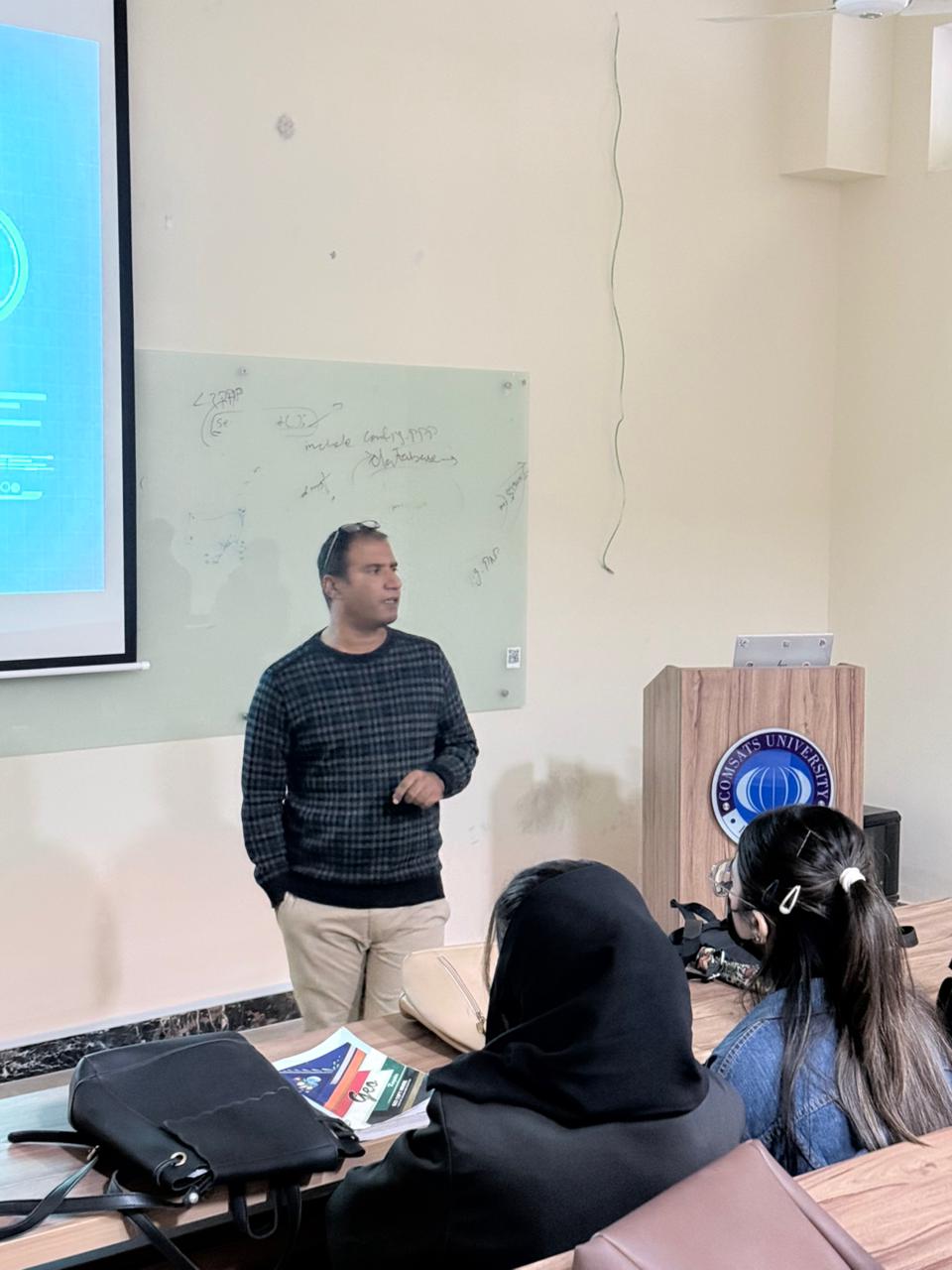
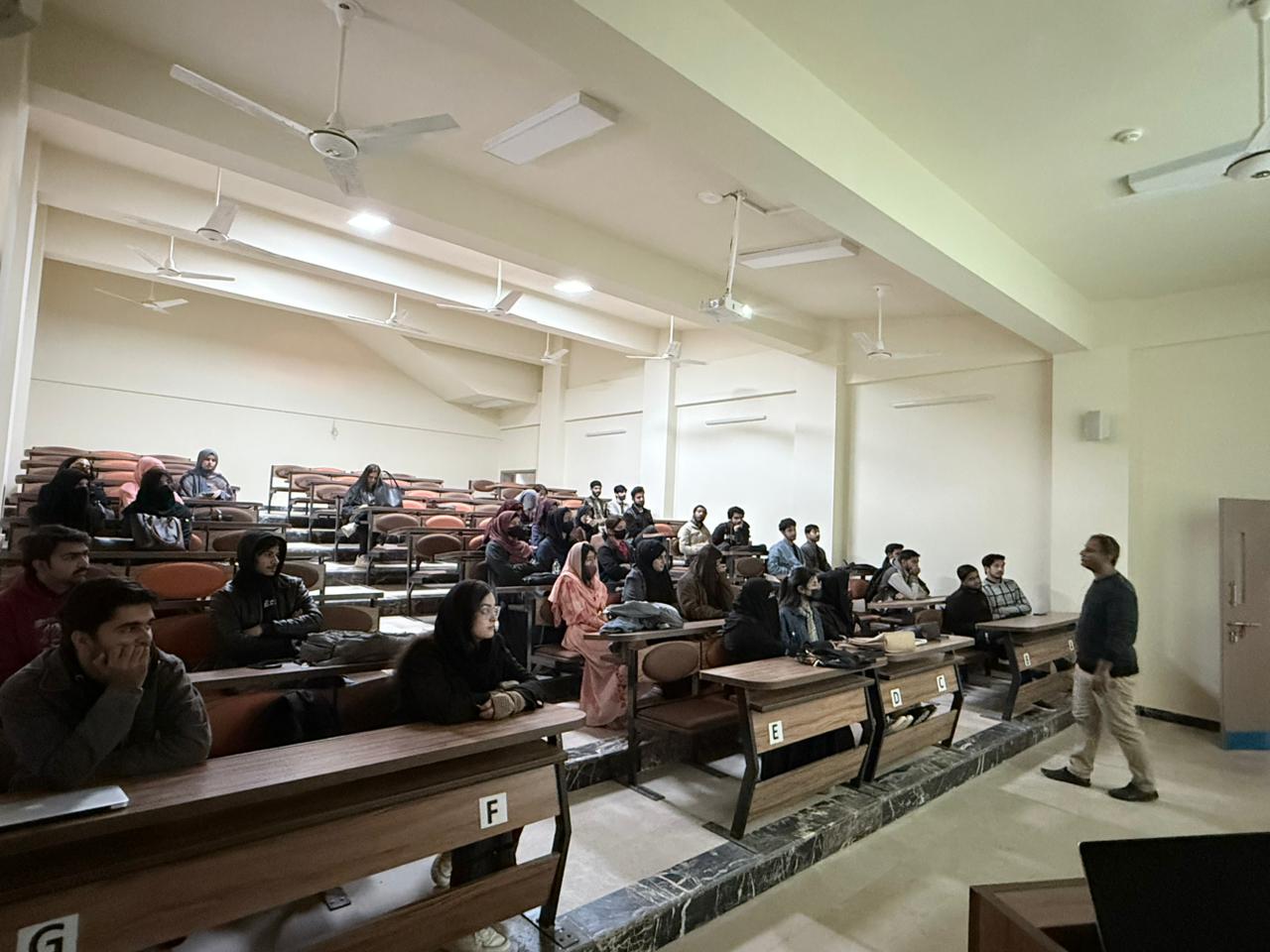
|
The Department of Civil Engineering organized a CPD seminar on “Sustainable Urban Planning and Design” on September 24, 2025, at CUI Wah Campus. Dr. Hassan Ashraf, HoD Civil Engineering, welcomed the guest speaker, Ms. Fauzia Rizwan, Managing Director of The Urban Solutions Pvt. Ltd., who brings extensive experience from NESPAK and holds an MS in Urban and Regional Planning from NUST.
The guest speaker highlighted the importance of sustainable urban planning in balancing social, economic, and environmental needs to ensure livable, resilient cities. Key focus areas included eco-friendly infrastructure, efficient land use, renewable energy, green spaces, sustainable mobility, affordable housing, resource conservation, and urban design that blends aesthetics with cultural identity.
The seminar featured active student engagement through a lively Q&A session. It concluded with a token of appreciation presented by Dr. Adnan Nawaz, Chairman of the Civil Engineering department, followed by a group photo and a vote of thanks.
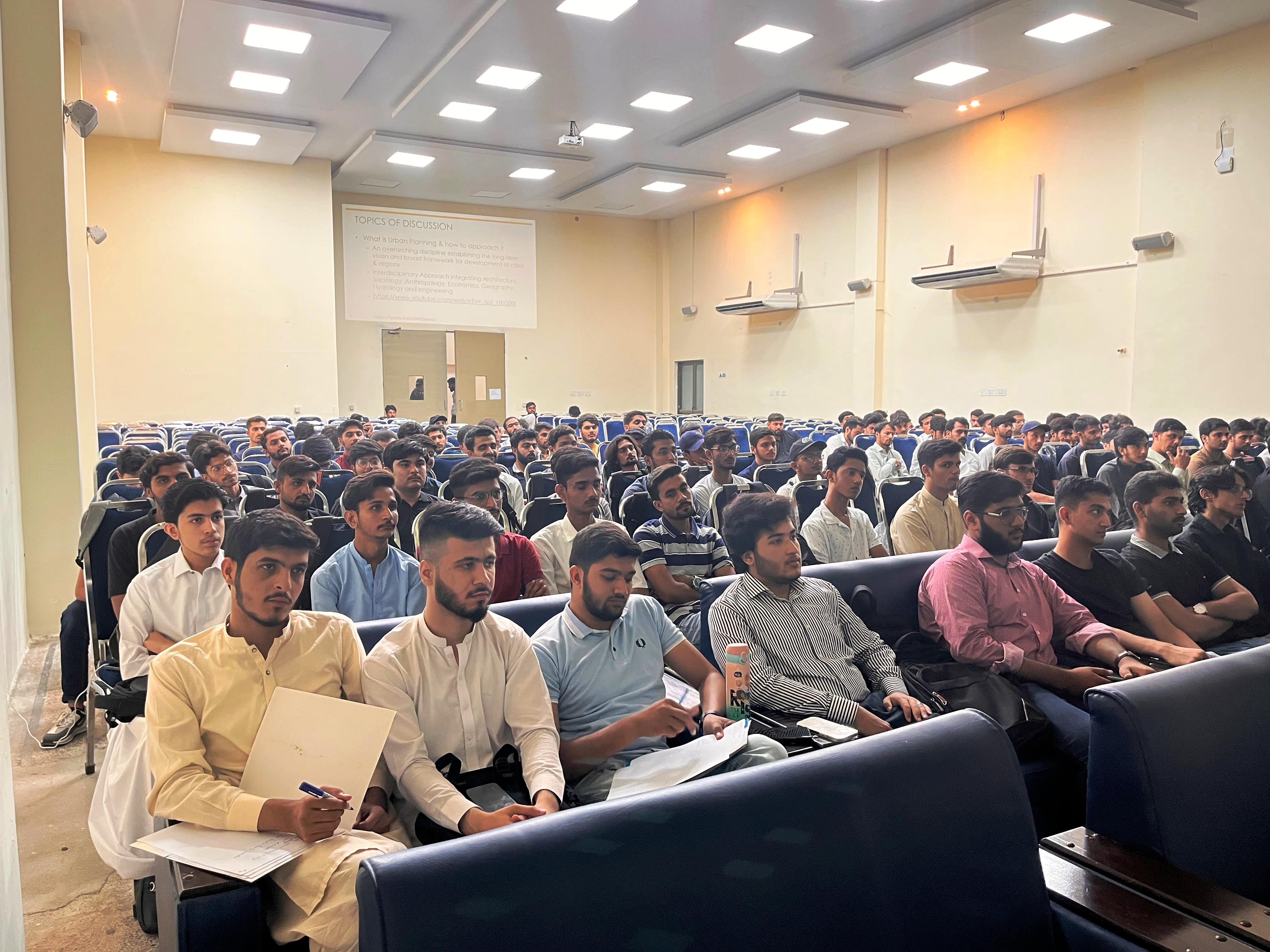
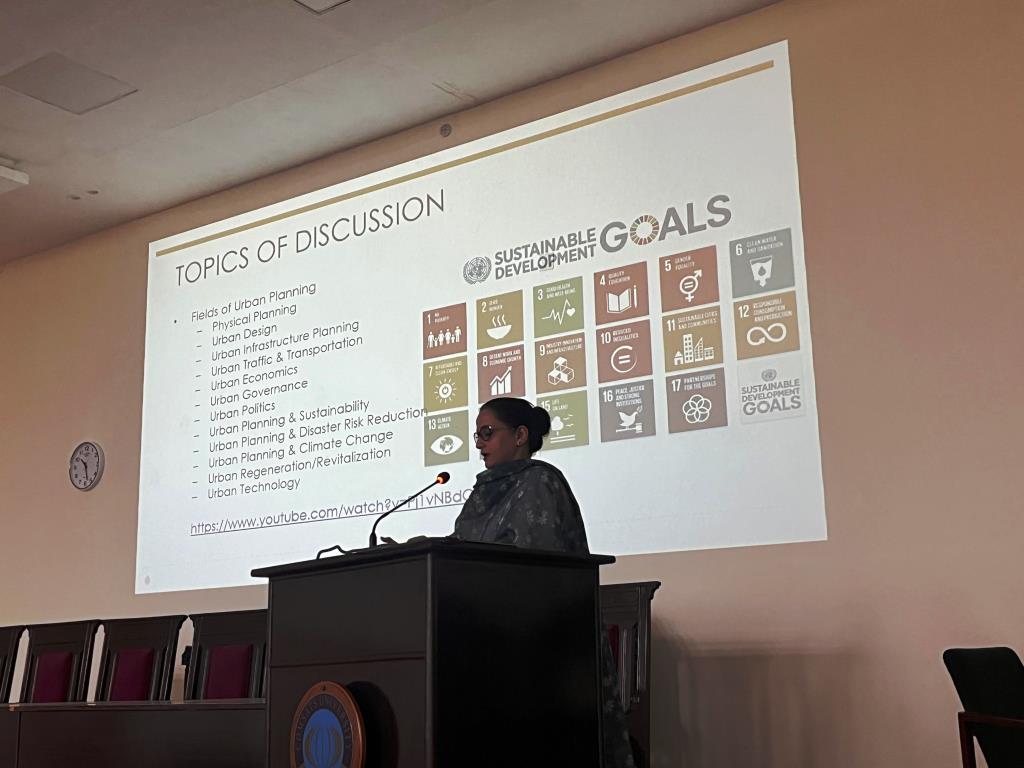
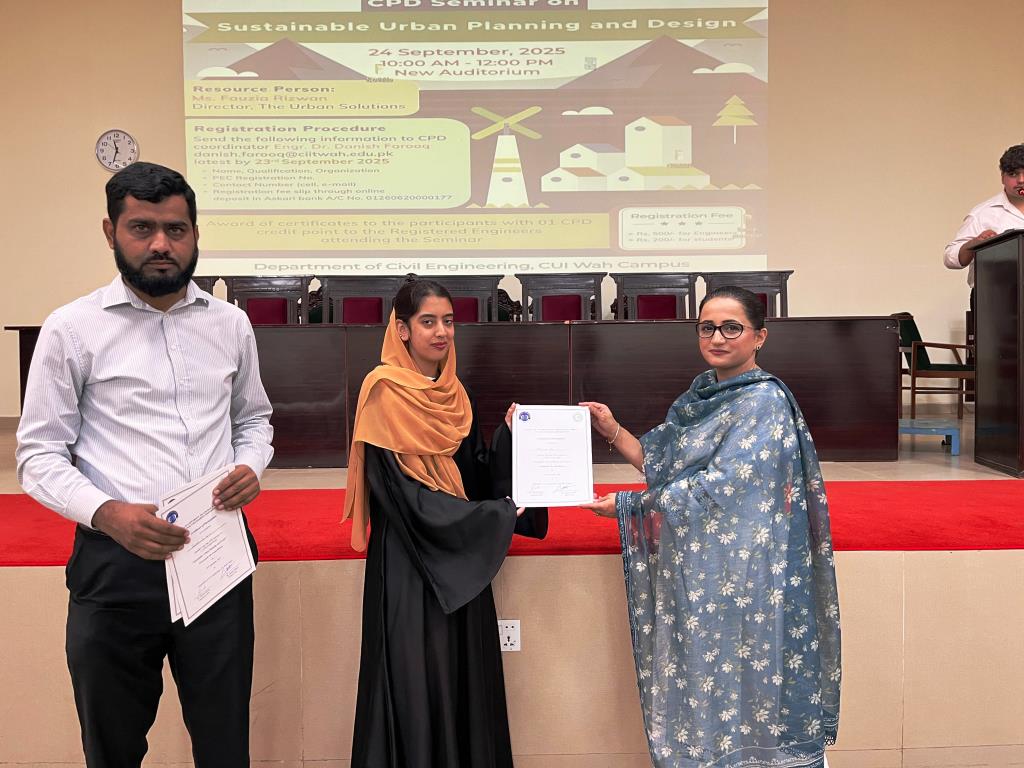

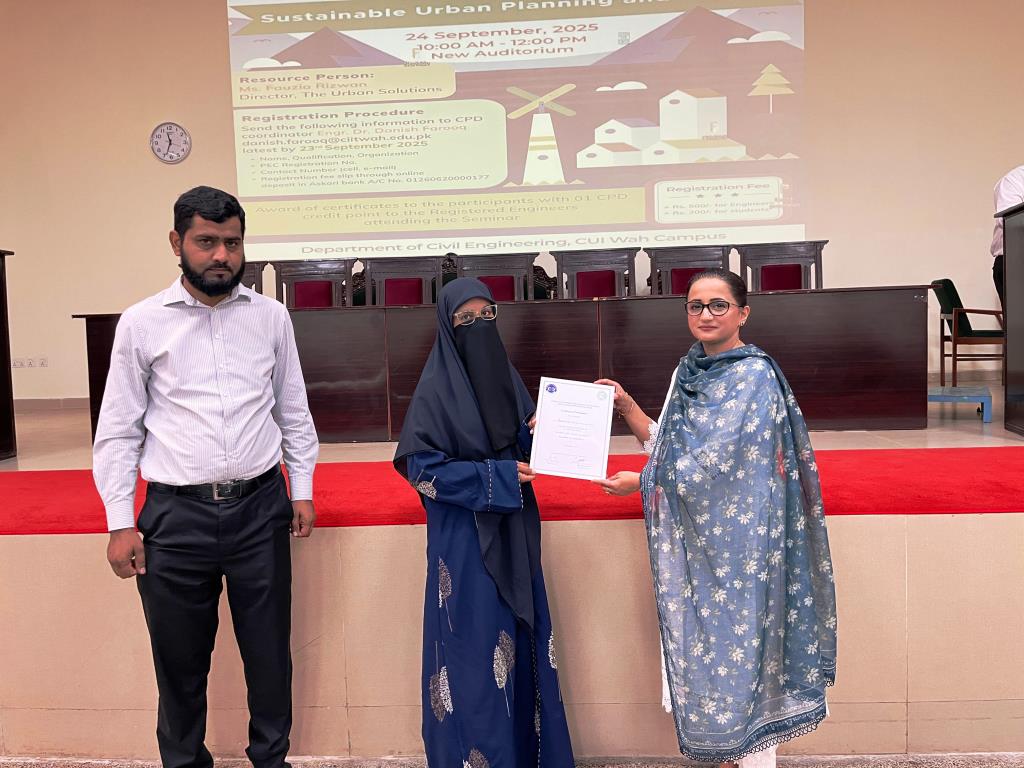
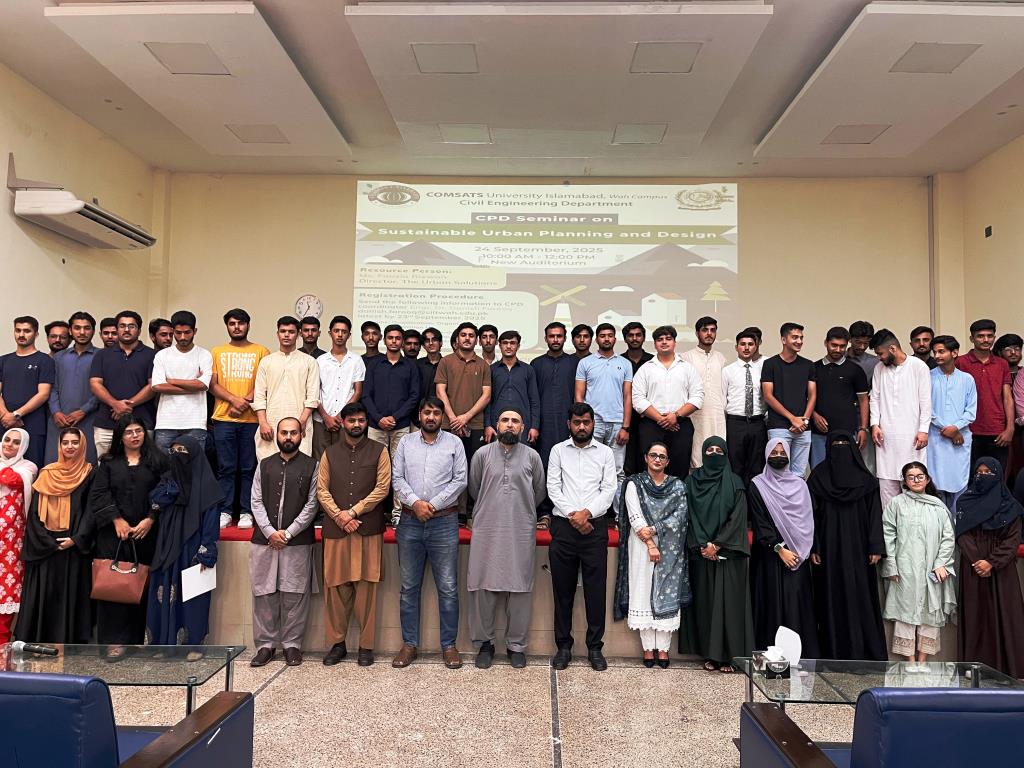
|
The IEEE Robotics & Automation Society (RAS) – CUI Wah Chapter organized a workshop on “Introduction to Robotics & Embedded Control Systems” on November 19, 2025. The session, conducted by Dr. Khawaja Fahad Iqbal, introduced students to the fundamentals of robotics, its key applications, and emerging trends in the field. More than 40 participants, including faculty and students, attended the interactive workshop.
Dr. Fahad highlighted the growing role of Artificial Intelligence (AI) in enabling robots to learn, adapt, and make decisions. He also discussed major categories of robotic systems, including mobile, industrial, service, autonomous, and humanoid robots, and provided an overview of the Robot Operating System (ROS). Participants gained valuable insights into current market needs and opportunities in robotics research and competitions.
The event concluded with a vote of thanks and the presentation of a souvenir to Dr. Khawaja Fahad Iqbal by the Head of the Electrical Engineering Department.
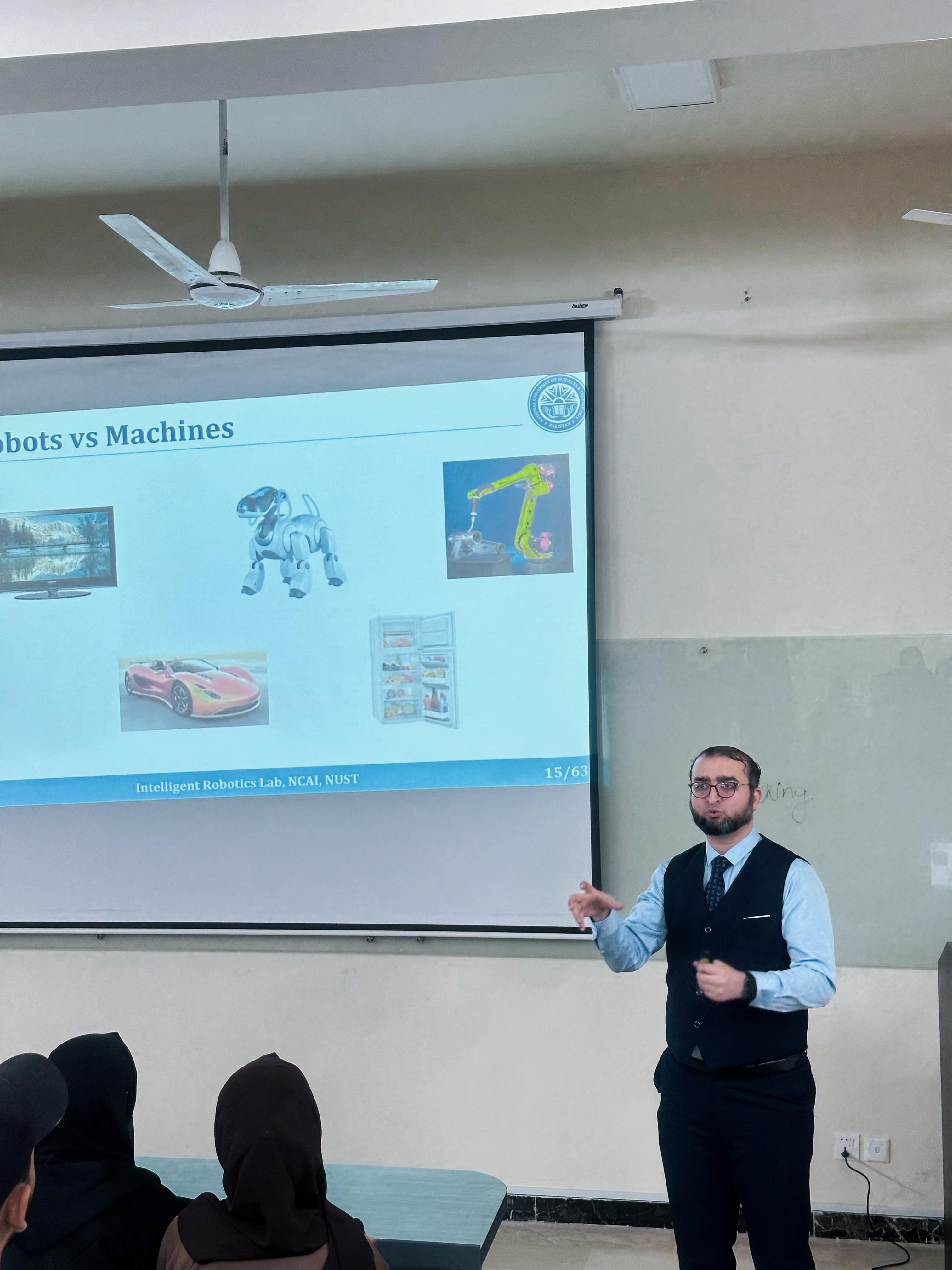
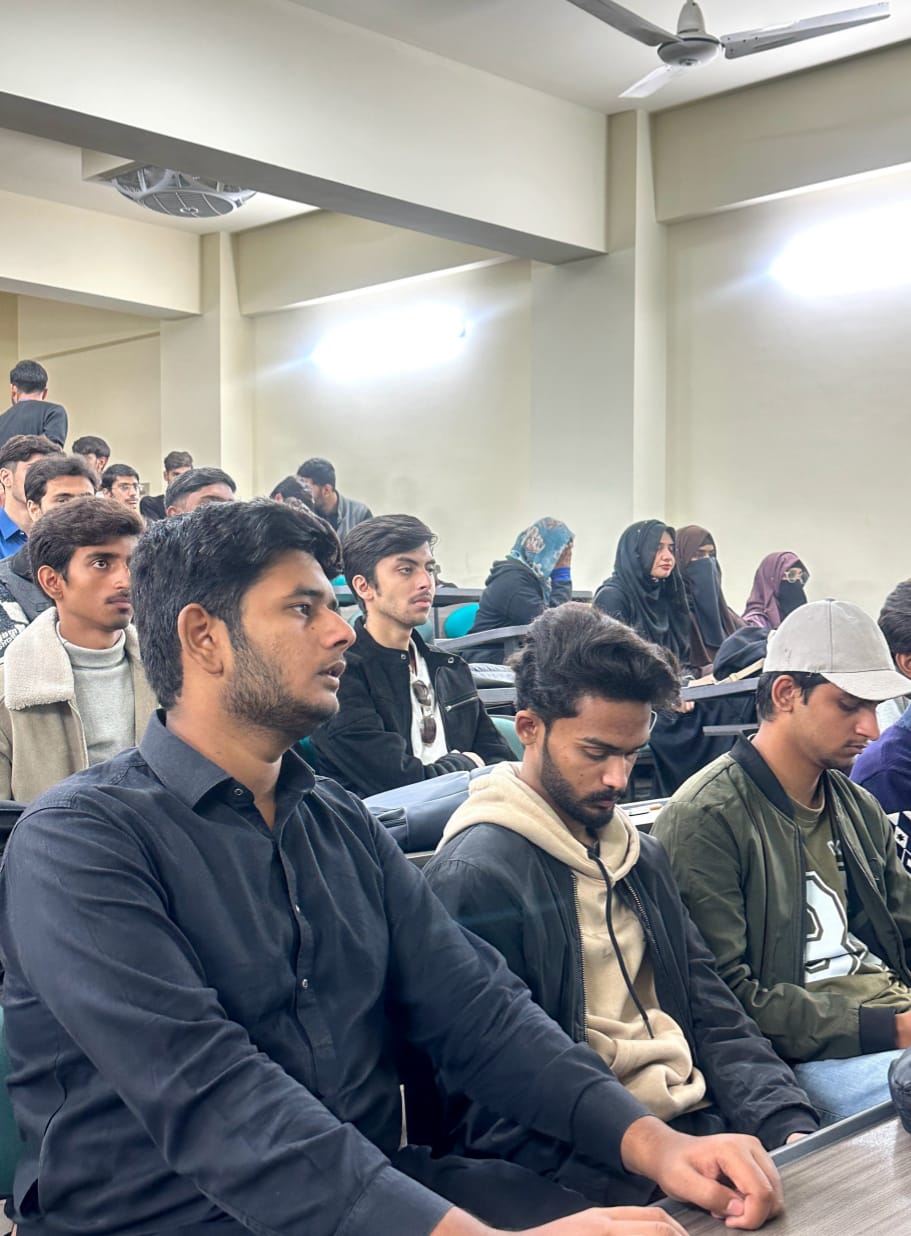
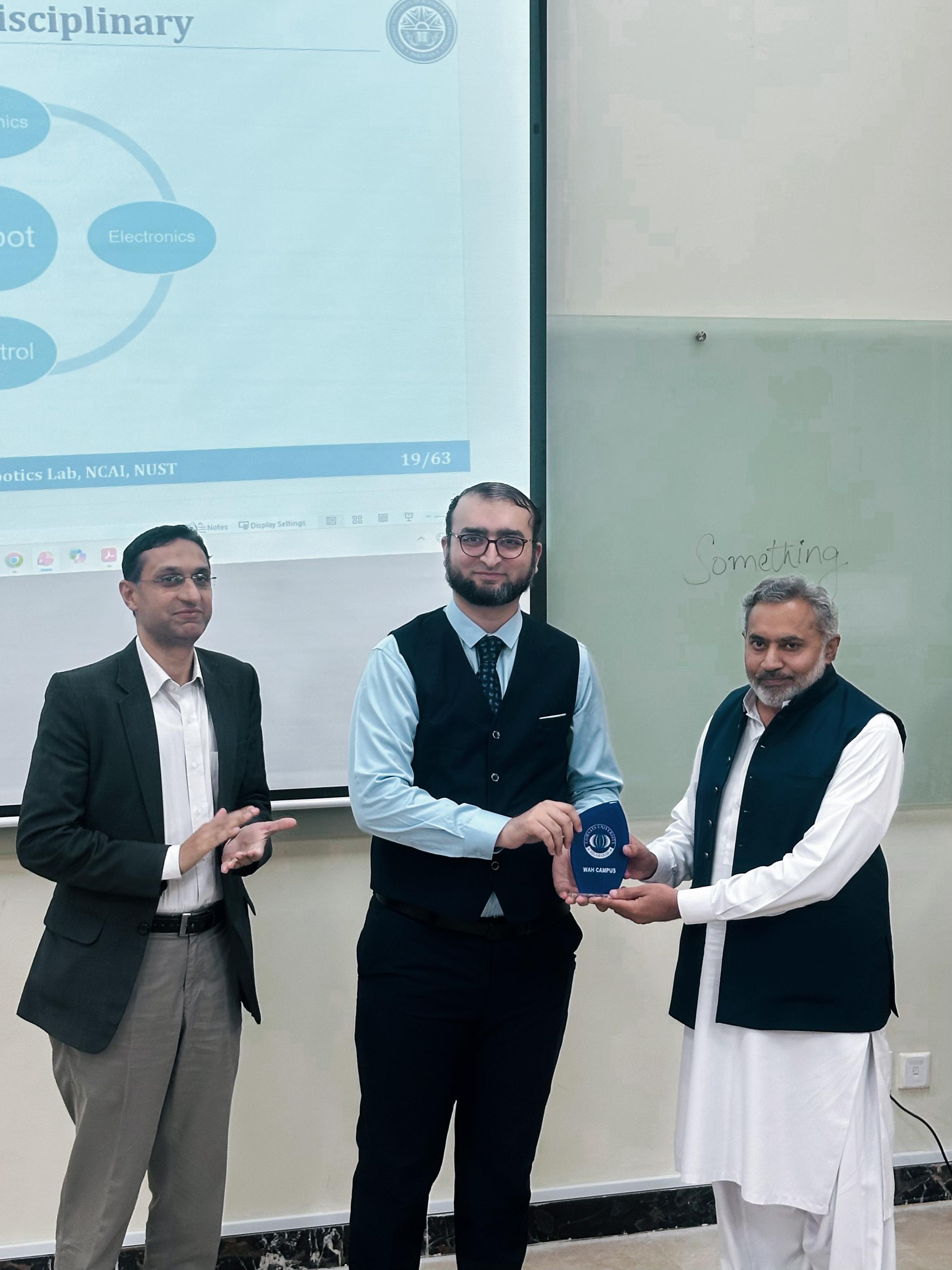
|
Career Gateways to Japan UNLOCKED at CUI!
COMSATS University Islamabad (CUI) proudly hosted a high-profile career seminar, "Career Gateways: Unlocking Job Opportunities in Japan," in collaboration with Plus W, Inc. a leading Japanese Human Resource Firm on Thursday 20th November 2025.
The session provided CUI students with a comprehensive roadmap to professional careers in Japan's dynamic economy.
Key Highlights:
- Market Insight: Experts shared a detailed overview of the Japanese job market and the high demand for Pakistani talent in key industries, especially IT.
- Expert Panel: Featuring Mr. Hafiz Muhammad Umair Munir (Head, Pakistan Japan Center, Plus W), Mr. Muhammad Talha (Deputy Head), Ms. Aisha Raja (Bridge Engineer), and a special online address from Mr. Junya Fukui (Senior Director, Plus W, Japan).
- CUI Success: We celebrated the success of 6 CUI Alumni who have already been recruited and placed in Japan by Plus W, including a live online testimonial from one of the placed alumni!
- Free-of-Cost Pathway: Plus W reiterated their commitment to providing their services—from practical IT training and cultural orientation to visa processing—completely FREE OF CHARGE.
- Strong Linkages: The event highlighted Plus W's robust presence in Islamabad and their official MoUs with institutions like NUST, CUI, and the Overseas Employment Corporation (OEC), ensuring maximum facilitation.
- Higher Education: Information was also shared on the prestigious MEXT Scholarship for those interested in pursuing further studies in Japan.
This collaboration is a testament to CUI’s dedication to empowering our graduates with global opportunities.
A special thank you to the Plus W team for their invaluable insights and commitment to Pakistani talent!
View pictures
|